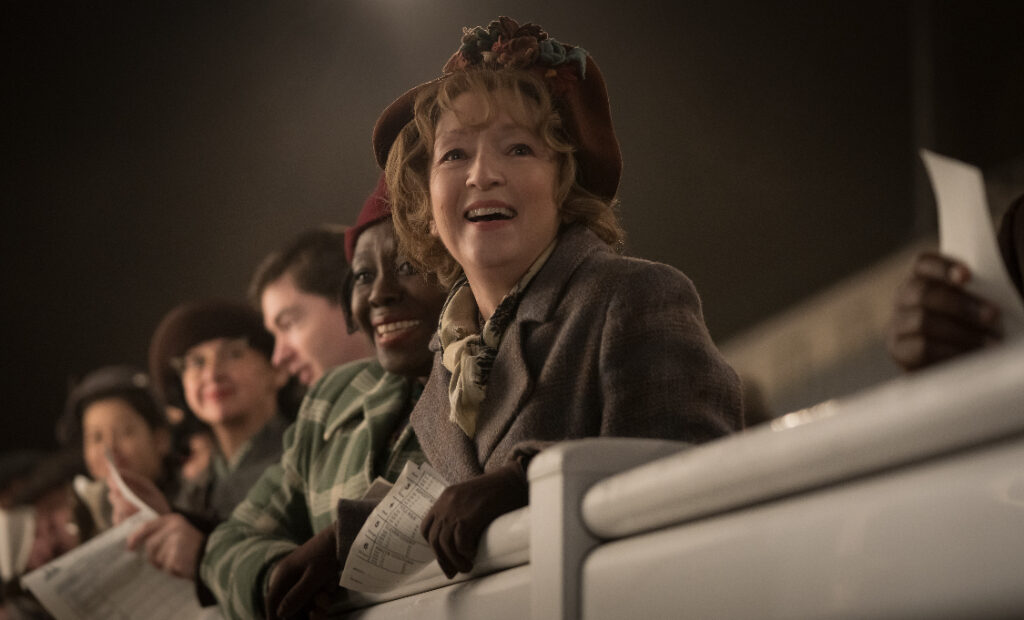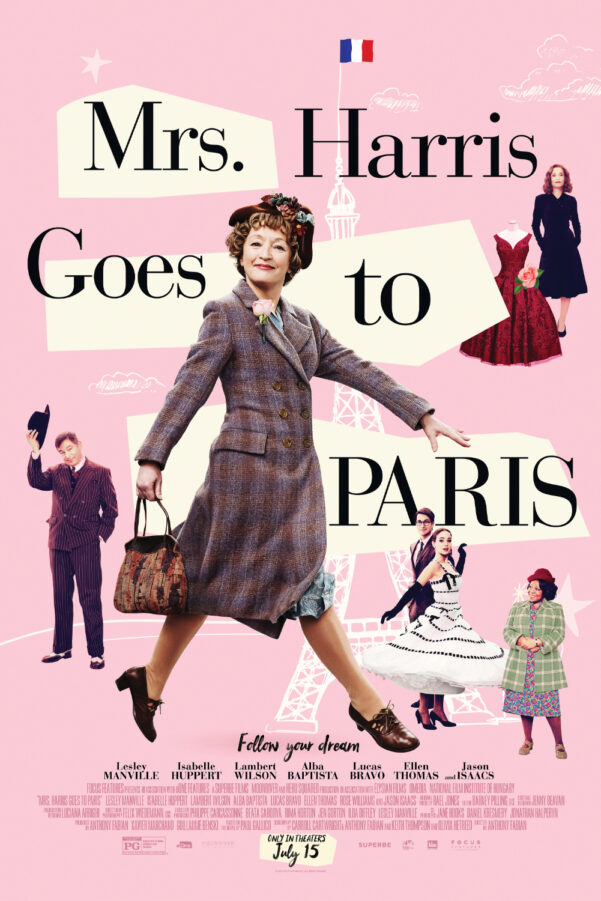Mrs Harris Goes to Paris

Adapted from Paul Gallico’s 1958 novel, Mrs ‘Arris Goes to Paris, Anthony Fabian’s Mrs Harris Goes to Paris dispenses with its source’s titular colloquialism but preserves its airy, charming irresistibility in a neatly wrapped, nostalgic bonne bouche of entertainment, providing the perfect temporary antidote to an age of anxiety.
Ada Harris (Lesley Manville), a widowed charwoman based in Battersea, falls in love at first sight with a Christian Dior dress, recently purchased by an aristocratic client of hers who, when asked by Harris for the delivery of overdue payments for her services, responds in deflection, “we’ve had to tighten our belts so much recently it’s a miracle we can breathe!”. Harris, frequently described as something of a dreamer, sets her sights on buying such a dress. In this transcendent vein, the film is imbued with an almost disarmingly effective pathos, where it begins to become something more than promised; a fairytale about life after love.
Through a combination of frugality and lucky breaks, Harris is able to gather the funds to travel to Paris, with her sights on landing a taste of the Parisian vogue. Naturally unfamiliar with convention, she expects to purchase a dress and leave for London the same day. Instead, she happens upon a showing of Dior’s 10th-anniversary collection and is greeted with frosty contempt by Dior director, Claudine (a typically icy Isabelle Huppert) as she ushers in a procession of Lords, Ladies and Marquises. Apocalyptic financial forecasts for the company, however, mean that they are unable to decline Harris’s offer of quick cash, no matter the class of the pocket it is plucked from. She is warmly befriended by a series of subscribers to the haute couture elite: Marquis de Chassagne (Lambert Wilson), also a widow, offers to accompany her to the showing, Natasha (Alba Baptista) “the face of Dior”, takes her under her peacock wing and André (Lucas Bravo), takes Harris into his home while she waits for her dress to be fitted.
The firmness of Huppert’s performance is very knowingly juxtaposed by the warmth of Manville’s, whose resplendent, glowing portrayal is the shining element which helps one suspend their disbelief at a story which is, at heart, a fairytale. The casting of Manville appears to be a playful nod and a wink to Paul Thomas Anderson’s Phantom Thread, a film which illuminates the world of 1950s haute couture by very different means. While Phantom Thread was almost gothic in its realisation of this world, Mrs Harris Goes to Paris is more akin to the nostalgic effervescence of The Marvelous Mrs Maisel.
The fantastical plot unfurls against a backdrop of a garbage collector’s strike, and general civil unrest in the city of Paris; the uncollected, rotting waste that decorates the city a somewhat grounding contrast to production design which is otherwise filled with crisp, aesthetic splendour and pinpoint recreations of 1950s Dior gowns.
Jason Isaacs and Ellen Thomas are luminous as the cornerstones of Harris’s Battersea social circle and are perhaps a little underused in a film which is otherwise unbothered about giving its audience exactly what it wants. But Manville’s dramatic shoulders are more than broad enough to carry the weight left by their absence for swathes of the film.
In a world of perpetual, growing uncertainty, a film like Mrs Harris Goes to Paris isn’t just welcome, it is necessary.
Matthew McMillan
Mrs Harris Goes to Paris is released nationwide on 30th September 2022.
Watch the trailer for Mrs Harris Goes to Paris here:

























Facebook
Twitter
Instagram
YouTube
RSS